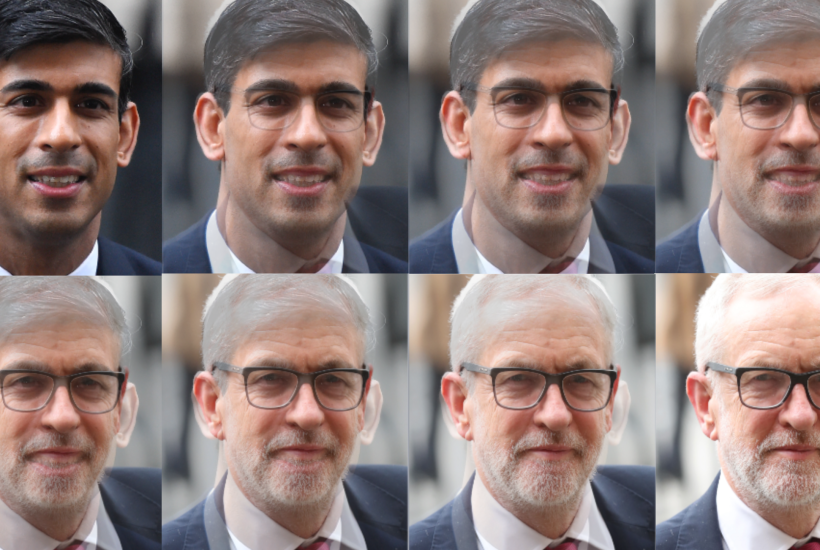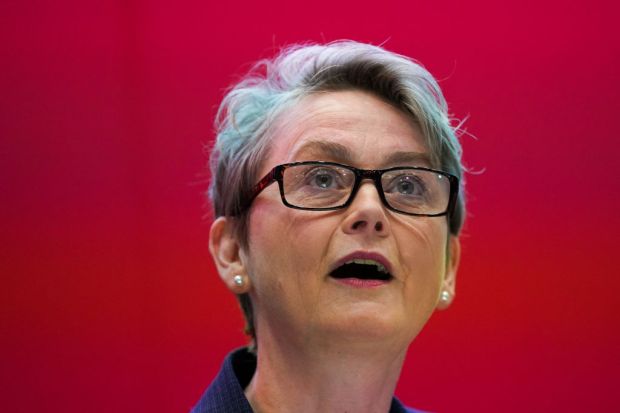Almost five years ago to the day, Amber Rudd had her finest hour in politics.
Standing in for the frit Theresa May at the BBC leaders’ debate on May 31, 2017 – even though her father had died only two days earlier – Ms Rudd rescued a Conservative election campaign that appeared to be collapsing.
Fixing Jeremy Corbyn with a confident stare, she declared: ‘There isn’t a magic money tree that we can shake that suddenly provides for everything that people want.’
The phrase was such a hit that Mrs May repeated it a week or so later after she had finally emerged from the wreckage of her ‘nothing has changed’ U-turn on the dementia tax. The Labour advance was arrested and Mr Corbyn was kept out of Downing Street. But it had been a mighty close-run thing.
Half a decade later many Tories are starting to wonder what the point was of fending off Corbyn at all given the abandonment of fiscal conservatism and frequent shaking of the allegedly non-existent magic money tree that has ensued.
Hundreds of billions of pounds of quantitative easing has taken place, combined with the largest ever public spending and borrowing splurge during the Covid pandemic. This was followed by no fewer than three giveaway mini-budgets already this year from Rishi Sunak – an initial package of measures on energy support in early February, his official Spring financial statement in March and this week a further cash injection of either £15 billion or £21 billion depending on how you count it.
State spending as a share of GDP is reaching levels not seen since the post-war Labour government of Clement Attlee and there seems no end in sight.
Rudd’s attack on Corbynomics came when Labour was proposing a 45p in the pound income tax rate above an £80,000 threshold. Given the new National Insurance surcharge to pay for the care costs of the relatively wealthy, we now have an effective rate of tax on income of 43.25 per cent above £50,000 – not so very far removed from Corbyn’s ambitions. And frozen thresholds are going to exacerbate this tax grab, dragging more people in to the higher rate of tax.
Corbyn also proposed raising the rate of corporation tax from 21 to 26 per cent. Sunak is planning to raise it from 19 to 25 per cent, so let’s not pretend he’s doing much better by businesses either.
And with Sunak’s new windfall tax – what he comically prefers to call a ‘temporary targeted energy profits levy’ – the Chancellor has gone much further than Labour under shadow chancellor Rachel Reeves was pushing for. His levy will raise £5 billion, Reeves’s was estimated to scoop up just £2 billion. And while her windfall tax was to be for one year only, his is scheduled to run until 2025.
None of this has prevented well plugged-in commentators from speculating that Sunak will be back with yet another giveaway budget come the autumn. After the Johnsonian state ‘threw its arms around’ all of us during the pandemic it seems determined never to leave us to fend for ourselves again.
This is all causing growing angst among Thatcherite purist backbenchers. One, Richard Drax, stood up in the Commons to recommend entrepreneurial wealth-creation as the answer to all our current woes with the zeal that perhaps only a man who inherited 14,000 acres and a stately home in Dorset could be expected to muster.
‘Throwing red meat to socialists by raising taxes on businesses and telling them where to invest their money is not the Conservative way of encouraging those who create our prosperity and jobs,’ said Drax, adding: ‘By setting this bar we’re in danger, were we ever to lose power, of allowing the socialists to raise it, which they would do with relish.’
Yet Drax and his allies surely need to explain why Thatcherite economics isn’t more popular if it is so obviously a more secure route to general prosperity. It is no good falling back on the old leftist notion of ‘false consciousness’ to explain why an idea falls flat with the British public.
In the absence of being able to demonstrate wider support for a return to an economic policy of shrinking the state and sharpening incentives, Sunak’s approach is perfectly understandable and well within the Tory ‘art of the possible’ political tradition.
Yet it was notable that in one broadcast interview this week, the normally well-scripted Chancellor declared himself in rapid succession both ‘first and foremost a fiscal Conservative’ and ‘first and foremost a pragmatist’.
His boss next door has never worried about having his cake and eating it in such a manner. Indeed, this week Johnson mocked Starmer for ever having supported ‘Vladimir Corbyn’ before sitting down to cheer on Sunak’s latest adventures in the land of magic money.
One suspects it would take a significant further deterioration in the UK economy, 1970s style, followed by a weak and short-lived Labour administration to pin the blame on, for the Thatcherites to get their hands back on the tiller.
Got something to add? Join the discussion and comment below.
Get 10 issues for just $10
Subscribe to The Spectator Australia today for the next 10 magazine issues, plus full online access, for just $10.




















Comments
Don't miss out
Join the conversation with other Spectator Australia readers. Subscribe to leave a comment.
SUBSCRIBEAlready a subscriber? Log in